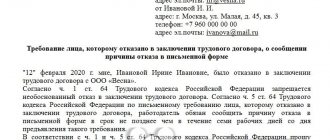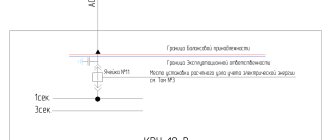Subsidiary liability in case of bankruptcy of an individual. persons does not apply. The rules of subsidiary (or collective) liability apply only in procedures involving debtor organizations. However, an individual may be called upon to act as a subsidiary if the enterprise goes bankrupt.
Recognition of liability is allowed if the citizen could influence the decisions and actions of the bankrupt and is directly or indirectly guilty of causing the debt. In this article we will tell you how and why people are brought to subsidiary liability, how to avoid it or write off the collected debt.
Vicarious liability - what is it in simple words
The person who violates it is usually liable for the obligation. The creditor can demand payment of the debt out of court, go to court and bailiffs, and transfer documents for retention to the FSSP. In some cases, additional (subsidiary) liability is allowed. Its essence is that the obligation of the main debtor will be fulfilled by another person.
Vicarious liability is an additional guarantee for the creditor if he is unable to recover money from the main debtor.
The subsidy can be used:
- for loans and borrowings
- in this case, the contract immediately specifies a person who guarantees the bank to return the money if the borrower does not do so; - for transactions, agreements, contracts
- legal entities usually use the option of surety and subsidiary liability to guarantee compensation for damage in case of failure of deliveries, payment for goods, work or services; - by force of law
- in some cases, the subsidy can be applied automatically and without being specified in the contract (for example, the owner of the property is responsible for the obligations of a government institution).
Special rules apply for subsidiary liability for minors. If a child aged 14 to 18 years causes property damage, it may be recovered from legal representatives (parents, guardians, trustees).
In bankruptcy, subsidiary liability can also be applied. This is possible if the controlling persons, through their actions, inactions or decisions, brought the company to bankruptcy. A subsidy in bankruptcy is possible only if there is a fault of the controlling person, violation of the law or internal documents of the organization.
Is it possible to write off subsidiary liability by other means other than bankruptcy?
If the bankruptcy of a legal entity has already been completed, it will not be possible to write off subsidiary liability. The only thing that can be done is to challenge the court's decision at a higher authority. You need to act immediately, as there are appeal deadlines that cannot be missed.
We present to your attention 3 main ways that allow a legal entity to avoid liability in the context of judicial bankruptcy.
Reference to criminal prosecution
As a rule, criminal investigations are opened in parallel in such cases. The standard article is fraud.
Therefore, if a criminal case has been opened against you, where the claims against you include the entire amount of subsidiary liability, then you can challenge the holding of subsidiary liability.
Guarantee for company loans
Often managers and owners take out a loan for an LLC, where they act as guarantors. This is a reasonable move, which subsequently allows individuals to avoid subsidiary liability.
Why does this work? The fact is that when the main borrower goes bankrupt, creditors make claims against the guarantors. That is, in the bankruptcy of a legal entity, subsidiary liability does not apply; debts are transferred to the individual.
Then he applies for personal bankruptcy and successfully gets rid of them.
Limitation periods
You can get rid of liability if the statute of limitations has expired. For example, a loan was taken out in 2015, then it was not paid since 2021, and the company filed for bankruptcy only in 2020.
By law, the statute of limitations is 3 years. It is important that during this period the bank does not have time to go to court and settle the overdue loan.
Is subsidiary liability allowed in the case of bankruptcy of an individual? faces?
If an individual goes bankrupt, the rules on subsidiary liability do not apply. Unlike organizations, a citizen himself makes decisions about applying for loans and concluding agreements on other obligations. Family members may influence his decision. Including the spouse. However, the spouse is initially required to bear joint and several liability for all obligations incurred during the marriage.
There is no direct prohibition on subsidiary liability in the event of bankruptcy of an individual in Law No. 127-FZ. Such issues have been repeatedly considered by the courts when creditors tried to collect outstanding debts from family members and other relatives of the debtor. At the moment, the practice is clear - creditors have the right to challenge dubious and fictitious transactions, but cannot apply the rules on subsidiary liability.
Can an individual be called a subsidiary in the event of bankruptcy of a legal entity?
The debtor organization may go bankrupt during the liquidation process. Creditors can also file for bankruptcy. The bankruptcy process is led by a trustee. His responsibilities include searching for assets and forming a bankruptcy estate, selling property and paying creditors.
Creditors and the manager have the right to study documents on financial and economic activities, transactions for the last 3 years. Based on the results of such checks, it can be established that other persons are to blame for the formation of large debts and signs of bankruptcy.
If, after the sale of property, the debts of creditors remain unpaid, and checks prove the guilt of other persons in bankruptcy, it is allowed to bring to subsidiary liability. An application with such demands is submitted to the court by creditors or the manager. If the court grants the application, the remaining debts will have to be paid to the subsidiary defendant.
List of persons
To bring individuals to subsidiary liability, it is necessary to prove that they could influence the decisions and actions of the bankrupt organization in the last 3 years.
The list of such persons may include:
- the head of the company, including the former director
- he makes sole decisions on financial and economic activities, has the right to carry out most transactions without the approval of the founders; - chief accountant
- he is responsible for accounting and reporting, the reliability of the information in them; - founders (owners) of the company
- they can give the director instructions on finances and transactions, make decisions on the withdrawal or acquisition of assets, making major transactions or refusing them; - other persons who had the authority to conclude transactions, make decisions, dispose of property
- for example, such authorities can be transferred by a notarized power of attorney, by decision of the founders.
In rare cases, bringing individuals to subsidiary liability may affect relatives and family members. This is not directly stated in the law, but it is not prohibited either. In this case, creditors will have to prove that the relative influenced decision-making and dubious transactions.
Please note that in one bankruptcy case there may be several subsidiary defendants at once. For example, if all the founders approved a major transaction for the sale of property, and its value was obviously lower than the market value, creditors have the right to insist on a subsidy.
Reasons
By default, the founders, director and chief accountant are not liable with their property for the company’s debts. It is understood that during the period of operation of the company they acted reasonably within the framework of business risk and made informed decisions.
Therefore, they can be held vicariously liable only for the following guilty actions:
- for failure to submit information to the Unified State Register of Legal Entities about the start of liquidation through bankruptcy;
- for failure to post information about bankruptcy on the Federal Resources website;
- for malicious evasion of repayment of accounts payable, if this is confirmed by materials of a criminal or administrative case;
- for violations in maintaining and approving reporting, if this interferes with the formation of a bankruptcy estate or the sale of property;
- for completing or approving a transaction that entailed a violation of the interests of the creditor.
Let us separately note the last item on the list.
Such transactions may include the withdrawal of assets in the last years and months before bankruptcy, obtaining large loans in the presence of large debts. The refusal of the founders to approve a major transaction, although it could bring significant income, can be considered as culpable actions.
Violations with documents and reporting may consist of distortion of data, concealment of receivables or their unjustified write-off, non-receipt of funds or assets. Violations with reporting are usually committed by the manager or chief accountant. At the request of the creditor, they may be held vicariously liable.
The applicant must prove the grounds for collecting the subsidy. For its part, the defendant can present evidence, arguments, and objections. We'll tell you more about this below.
Collection procedure
Vicarious liability in bankruptcy may arise in the amount remaining after the sale of property and settlements with creditors. All claims made against the defendant must be included in the register of creditors.
The algorithm for collecting subsidies is as follows:
- Based on the results of the sale of property, the manager draws up a report, indicating in it the balance of the outstanding debt;
- creditors or the manager check documents and information on all aspects of the debtor’s activities, the validity of transactions with property and funds;
- if the results of the inspection confirm the guilty and dishonest actions of the controlling persons, an application is submitted to arbitration;
- During the consideration of the case, the court has the right to introduce interim measures in relation to the property of the subsidiary debtor (seizure of assets and accounts, ban on registration actions);
- if the application is found to be justified, the creditors are issued a writ of execution
In case of bankruptcy of individuals, subsidiary liability does not apply.
If an organization goes bankrupt, then an individual may be recognized as a subsidiary defendant. To do this, it is necessary to prove in court that the guilty actions or decisions of an individual led to bankruptcy.
Based on the writ of execution, you can contact the FSSP to initiate proceedings and levy execution on the property and funds of the subsidiary debtor. The deadline for presenting the sheet for execution is 3 years. Debt collected from a subsidiary defendant is not considered uncollectible and is not written off after completion of bankruptcy.
How to write off subsidiary liability from an individual
If you are brought in as a subsidiary defendant for the debts of a legal entity, you can admit the claims and begin to repay the debt, or use various methods of defense.
Let us note that in the last 2-3 years, the total number of bankruptcy cases with recovery under subsidiarity has increased sharply. The courts protect the interests of creditors, especially if the controlling persons do not provide evidence of their innocence.
Below we will tell you how to avoid problems when filing for bankruptcy and achieve release from obligations.
Proper preparation for bankruptcy
It is better to assess all the risks in advance than to prove your innocence in court. Before filing for bankruptcy, we recommend:
- contact lawyers, conduct a comprehensive review of all documents and transactions over the past 3 years;
- order an independent audit of reporting and financial and economic activities, receive a report or conclusion on the absence of violations;
- find an opportunity and pay off debts on transactions that are in doubt. At least partially;
- Conduct an independent assessment of the company’s property and receive an appraiser’s report;
- avoid dubious transactions and obtaining loans immediately before filing for bankruptcy.
It is better to carry out all checks with the support of lawyers. You may not pay attention to some of the nuances of the case. But they are the ones who can decide the outcome of the process. If the risk of being held vicariously liable is too great, it is better to refrain from filing for bankruptcy. For example, you can get rid of a troubled company with debts through sale or transformation.
Appeal against collection
If creditors have already filed an application for subsidiary liability, immediately contact a lawyer. You can hire him to represent your interests in court, prepare evidence, file objections and complaints.
When considering an application in court, you can refer to the following arguments:
- on reports and conclusions of auditors, materials of own audits;
- on the materials of field and desk audits of the Federal Tax Service, if they did not reveal any violations in reporting;
- to carry out all transactions and make decisions within the normal business risk;
- to skip the statute of limitations for individual claims included in the register of creditors;
- the lack of adequate evidence of debt;
- for incorrect calculation of the amount of debt presented for collection.
It is better to choose the exact defense tactics together with a lawyer. If the judge nevertheless granted the application, you can file an appeal. If it was not possible to achieve a positive decision, you can ask the court to defer or install payments.
Petition for subsidiary liability
If the assets of the debtor's company are not enough to fulfill the financial obligations assumed to contractors and other third parties, the legislator gives them the right to hold the founder, general director and everyone else whose actions and decisions led to the bankruptcy of the debtor to subsidiary liability. This is done by filing an application with the courts.
In addition to creditors, a temporary manager searching for assets to fulfill the obligations of the debtor company has the right to submit claims.
Such a petition is given 36 months from the moment the debtor is declared bankrupt. This is the statute of limitations that has been established.
Important
Responsible persons need to take into account that failure to file an insolvency application, as well as its submission in violation of deadlines, is the basis for the emergence of subsidiary liability, while timely initiation of bankruptcy proceedings will not only avoid accusations, but will also reduce the company’s expenses.
The standard time allotted for consideration of the application is 60 days from the date of its acceptance and registration in the court office.
Personal bankruptcy
Is it possible to write off subsidiary liability if you were unable to repel the creditors’ demands, and the court ruled not in your favor? It is not very easy to get rid of subsidiary liability in bankruptcy.
Through bankruptcy of individuals. After collecting the subsidiary debt, other types of obligations can be written off. The debtor can go through the bankruptcy procedure through the court or the MFC. We recommend preparing documents and going through all procedures with the support of a lawyer. If you make mistakes, you may be held accountable instead of having your debts written off.
After going through the procedure through the MFC or arbitration, subsidiary liability after bankruptcy of an individual will remain. But by getting rid of other types of obligations, it will be easier to pay off the subsidiary debt.
Limitation periods
When considering a creditor's application, it is difficult to refer to missed deadlines. When arbitration opens a bankruptcy case, it checks the validity of all claims. Therefore, the register of creditors does not include claims for which the deadline for collection has been missed.
There is another statute of limitations that you need to pay attention to. The creditor is obliged to present a writ of execution within three years. If this period has expired, the bailiffs are obliged to refuse to initiate proceedings. Accordingly, you can also file a complaint if the court unreasonably initiated a case based on a writ of execution with an expired statute of limitations. And the FSSP officer began to implement the court’s decision.
Redemption of subsidiary liability
This is not the easiest way to solve the problem, especially if you do not understand the nuances of the law.
If a creditor has been trying for a long time and unsuccessfully to collect a subsidiary debt, he can sell (assign) it. In such transactions, the redemption amount is several times less than the amount of the principal debt.
Acting through companies controlled by you, you can try to buy back your own debt for a symbolic amount. There is no guarantee that the creditor will agree to assign the debt for a small refund. But if you manage to conclude such an agreement, the savings on payments will be significant.
Grounds for bringing to subsidiary liability
This type of liability arises when funds from the sale of the debtor’s property are not enough to cover the company’s debts.
The basis for liability of the director of a legal entity and other persons associated with the company is compliance with signs of insolvency and the impossibility of fulfilling their obligations to financial counterparties. In such a situation, management’s responsibility is to initiate bankruptcy proceedings.
To recognize the bankruptcy of an enterprise, it is necessary to have evidence of its insolvency, for which all types of documentation are checked and analyzed.
Free legal consultation We will answer your question in 5 minutes!
Call: 8 800 511-39-66
The Supreme Court ruled at the end of 2021 that liability for the debtor is possible only if the company has objective signs of bankruptcy. Debt does not indicate actual bankruptcy. And subsidiary liability can most often be avoided if:
Free legal consultation
We will answer your question in 5 minutes!
Ask a Question
- standard debts (for example, under supply contracts);
- management has an anti-crisis plan in case of bankruptcy and actions were taken in accordance with it;
- the company has receivables, and it was planned that the debts would be repaid using them;
- management's actions were reasonable and the financial statements confirm this.
If bankruptcy could not be avoided, when can they be held accountable? The reasons are as follows:
- fictitious bankruptcy - insolvency only on paper, while the fact of forgery in documents has been revealed;
- deliberate bankruptcy - for example, long-term work on credit, when the company’s debts increase, and management does nothing to repay them;
- inaction in case of objective bankruptcy - if the deadlines for filing an insolvency application are violated. In this case, all perpetrators will be jointly and severally liable.






